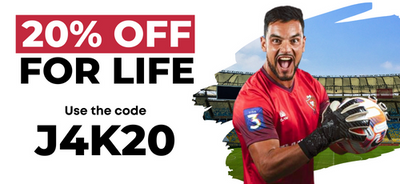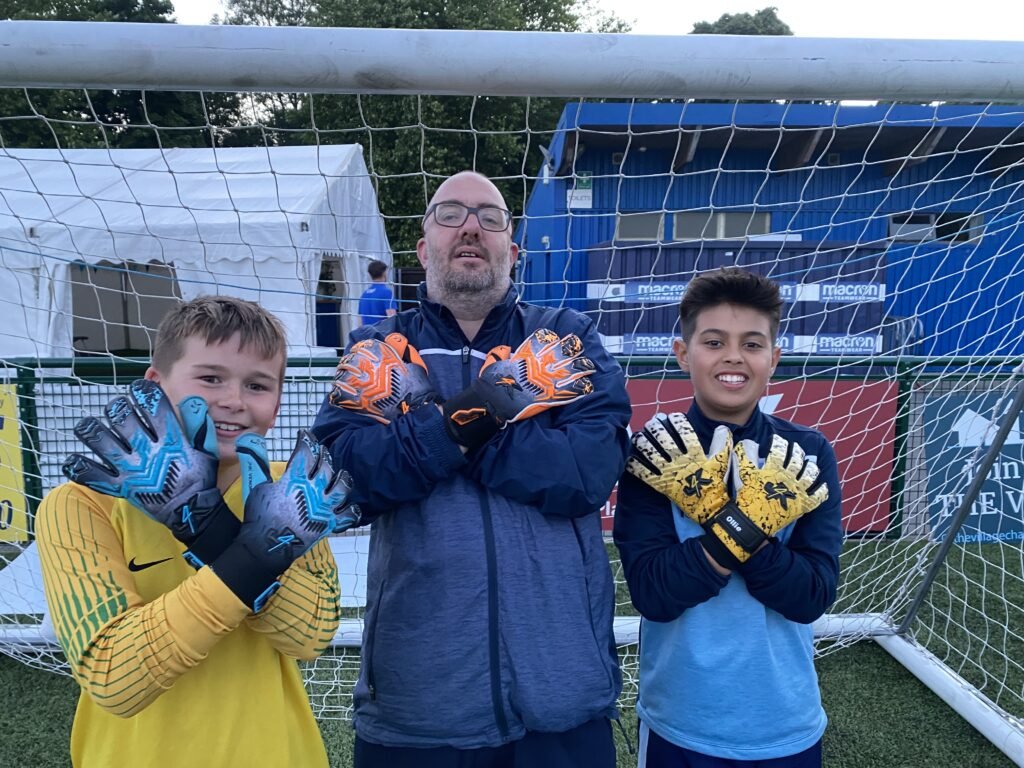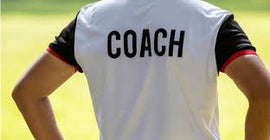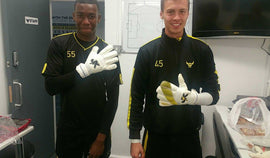Goalkeeper Training Near Me
The goalkeeper is one of the most important positions in soccer, so he needs specialized training to serve his team effectively and safely. Goalkeeper training is a vital part of improving a goalkeeper's performance.
Moreover, the help of the video analysis, psychology, and nutritional divisions are essential for focussing on the key features of improving as a goalkeeper.
The connectivity among these areas is also one of the main cornerstones of Goalkeeper's Excellence. The player protecting the goal must be mentally and physically prepared, and it is necessary that these two aspects are balanced for success.
Here, we discuss
How Goalkeepers Differ from Outfielders
Obviously, football players who play outside the goal box, known as "outfielders," receive far more attention than goalkeepers. Also, there are several standards and guidelines for outfielders to adhere to when it comes to strength and fitness training.
This is despite the fact that goalkeepers play a crucial role and require specialized training, as their game demands differ greatly from those of outfield players.
Goalkeeping: Why Specific Training Is So Important
The goalkeeper's position is a crucial one in football, and it no longer consists solely of diving and making saves, as was the case in the past. Today, the expectations on the goalkeeper have increased significantly.
This is due, in part, to the fact that the goalkeeper is the primary build-up player, he may speed up the game, and he must also possess tactical knowledge. Goalkeepers must be quick on their feet and use automated procedures to make quick and effective judgements. Specialised goalie training is crucial as a result.

Important Points the Goalkeeper Should Have in Mind
Goalkeepers can vary in stature and appearance. But the thing that all great keepers have in common is that they are very athletic. Your speed, agility, and strength are what really distinguish you as a goalie.
- Before urging people to specialise at certain positions, you must consider the context of our players and coaching environments into consideration.
- It's important that you nurture an atmosphere where students can develop fundamental abilities, such as the ability to move and comfort on the ball.
- Goalkeepers need a wide range of abilities and skills to succeed in the modern game, and these abilities and skills must be developed through a more diversified approach to goalkeeper training.
- Taking part in a variety of sports gives them the opportunity to acquire a well-rounded athletic experience and gain new abilities that they can use in football.
What skills should a football goalkeeper have?
Goalkeepers will have an easier time handling the ball because of these features. It is becoming extremely important for goalkeepers to be able to dominate the ball with their feet, and elite football demands that these skills improve each season.
To accomplish this, the coaches constantly train players in the controlling, passing, positioning, and reading drills of the game—many of which are more appropriate for midfielders than 'traditional' goalkeepers. There are also one-to-one drills, air departures, and agility drills that goalkeepers can participate in as part of specialised training programs.
The Key Movement Skills For ‘Keepers
Therefore, it is evident that goalkeepers and outfield players cannot be trained using a one-size-fits-all approach. Goalkeepers should receive training that is specifically tailored to the activity requests of goalkeeping if the goal is to increase their physical performance.
We have compiled the information specifically aimed at goalkeeper training and the unique requirements of the football goalkeeper. The proper exercises are essential in any football training.
Here are some exercises for goalkeepers designed to enhance their response time and coordination:
- Warm-up: During warming up in goalkeeper training, fundamental goalkeeping methods should be considered.
The warm-up does not have to be lengthy or severe, and following the same routine is not always required. Goalkeepers can undertake a physical warm-up alongside their teammates, followed by a skill-specific warm-up on their own.
- Coordination: In order to train the goalkeeper, coordination skills must be an integral part of goalkeeper training. It takes a split second to decide whether there will be a leg kick, catching glove flash, or diving forward or laterally, while staying on their feet and out of position.
It takes great coordination to make fluid, dynamic movements in rapid succession, and goalkeepers who think ahead often think one or two moves ahead.
- Diving: If the ball could no longer be stopped by rushing toward it and, the goalkeeper must dive. Techniques involving the legs, jumping, the body's extension, and falling must all operate together as for this to be effective.
The goalkeeper must always dive forward to defend the ball effectively. The proper landing approach must be practiced in order to reduce injury risk.
- Jumping and high-speed power: It is also necessary to train the goalkeeper's jumping power and speed. To perform a movement as explosively and efficiently as possible, you must use speed power. The goalkeeper needs to be well-trained for this to be successful. For jumping power to be effective, it is necessary to possess both high-speed power and maximum power.
- Agility: Most successful goalkeepers rely heavily on their agility. The term means many things to different sportsmen, however in this context, it combines speed with agility.
A goalkeeper's biggest friend is agility, which is essential for anything from position to making saves to protecting against harm. It should be a priority in any workout plan.
- Duelling: Duelling is the ability of a goalkeeper to utilize his or her body to defend the penalty box. During defensive set-pieces, several opponents are in the box, making it challenging for the goalkeeper to respond quickly.
In these intertwined, chaotic conditions, a strong core and upper body are needed.
Conclusion
Goalkeeper training is the best of all the goalkeeper training in the world. It improves reaction speed, agility, reflexes, and technique. Goalkeepers need technical training to succeed, and there are plenty of professional programs to take them to the next level.






